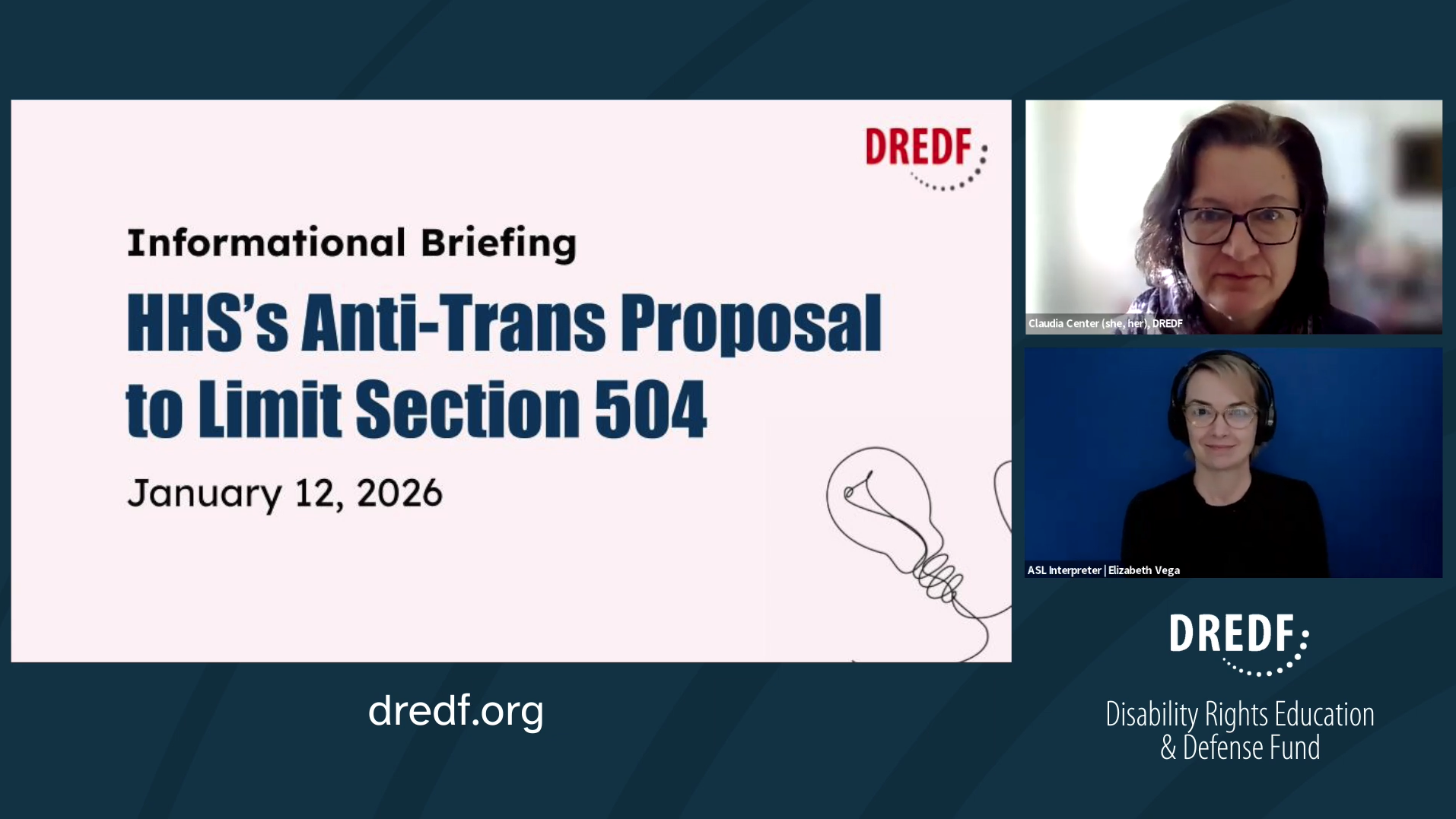
On October 24, 2022, DREDF filed a brief as amicus curiae (PDF) on its own behalf and on behalf of 11 additional disability rights organizations in support of the defendants’ motions to dismiss the claims forwarded in Shavelson et al., v. California Department of Health Care Services et al. The proposed class action case, which we have written about previously, seeks to eliminate the self-administration requirement of California’s End of Life Options Act (EOLA), the Act’s most essential and fundamental safeguard by characterizing it as a “reasonable accommodation” under the Americans with Disabilities Act.
The brief of Amici provides the Court with the perspective of the class of people who will be most adversely impacted if ELOA’s self-administration requirement is eliminated or circumvented – people with disabilities. The brief discusses how assisted suicide laws discriminate against people with disabilities, degrade their value and worth, and put them at higher risk of discrimination and abuse. Where states have nonetheless authorized this practice, like California, it is critical that existing statutory eligibility requirements, particularly one as fundamental as the self-administration requirement, be preserved.
The brief also discusses how California’s self-administration requirement reflects a sound legislative judgment that no person’s life should be ended unless they are fully committed to ending it – something that can never be truly clear unless they complete the act themselves. In other words, the self-administration requirement secures an essential moral and legislative line between assisted suicide and euthanasia.

